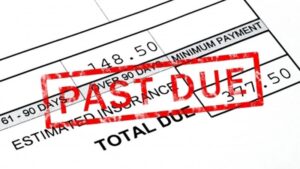What’s More Important: Managing Debt or Bad Practice?
Last year, I advised a company that went bust owing £100,000. The Insolvency Service sought to have the company’s director disqualified, but he couldn’t understand why as his liabilities dwarfed the sums owed by other companies.
I explained that he faced prosecution because of his conduct rather than the size of his debt. You may owe £30,000, but will still face disqualification if your conduct was bad; whereas a director with debts of £1m and good conduct will go unpunished.
When a business lends money to its director(s), the company becomes a creditor and the director a debtor. In hard times, the company should call in the debt and the director must repay it.
If the company goes into administration, the official receiver or liquidator scrutinizes the directors’ behaviour for the three-year period leading up to the date of the company’s demise and is duty bound to pursue the director(s) for repayment of that debt.
If the amount exceeds £5,000 the director can be disqualified. More directors than ever before are being disqualified for offences such as late payment of taxes, or using company funds to pay the mortgage and school fees.
Providing you’re solvent, you may be doing these things year after year and no one will ever know. But the reality is you’ve created a habit of bad practice and the moment you’re busted, your conduct will come under scrutiny.
Debtor Alert: Theodore Global Ltd
Theodore Global Ltd: A Company That Fails to Pay Its Staff and Trades While Insolvent If you’re thinking about working with, or for Theodore Global…
Read MoreIrene MacKenzie- The Gatekeeper of Silence
Irene MacKenzie and the Web Around William Jackson In the shadows of the alternative investment world, where buzzwords are abundant but redemptions are not, one…
Read MoreBilly Jackson Update Part 2: Companies of Interest
In our last blog on Billy Jackson, we exposed the web of enablers supporting his business operations. In this follow-up, we turn the spotlight on…
Read MoreThe Grim Truth for Loan Note Holders -79th Luxury Living Six Ltd (LL6)
No assets or safeguards. No clear path to recovery. If you’re one of the many investors who entrusted your money to The 79th Group’s loan…
Read More




